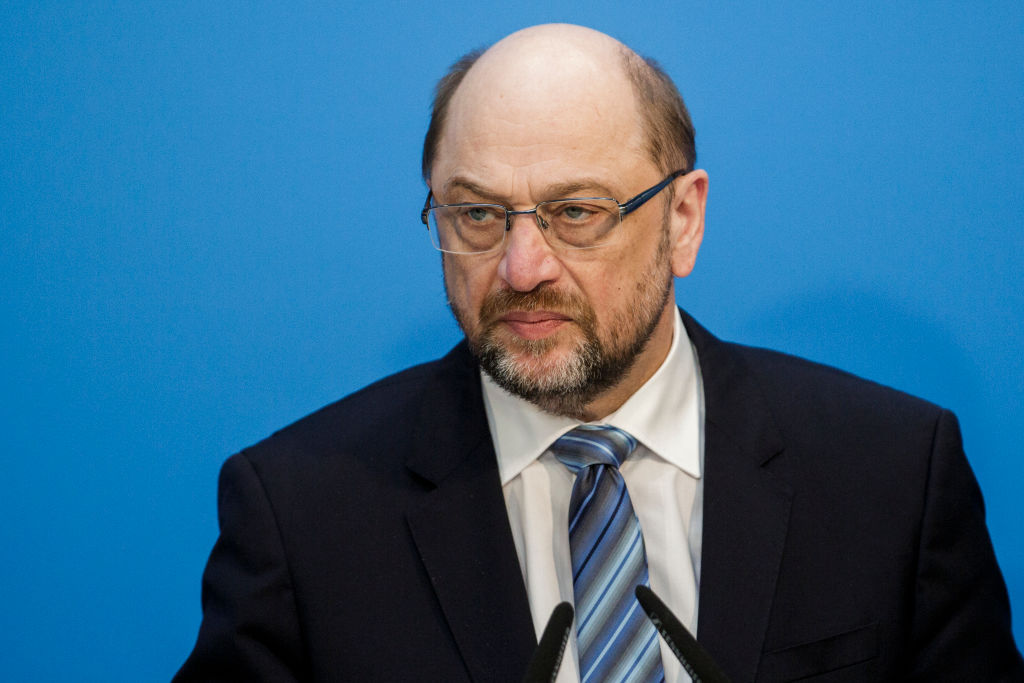Who’d have thought it? Last week, it looked like Martin Schulz had landed the key role of Foreign Minister in Germany’s new coalition government, despite leading his Social Democrats to their worst election result since the war. But now Schulz has been forced to decline the post after an internal revolt by his own party. It’s a sign that people power is returning to German politics, after years of cosy backroom deals.
Up until the weekend, it looked like Schulz had played a weak hand very well. His SPD only polled 20.5% in September’s election, and subsequent opinion polls put them even lower. Yet by sitting out the first round of coalition talks (between Angela Merkel’s Christian Democrats, the Free Democrats and the Greens) he’d ended up in pole position. When those talks broke down, Merkel’s CDU was forced to seek an alliance with his SPD – or risk a fresh election, and an even stronger showing by Germany’s new anti-immigration party, Alternative für Deutschland.
Consequently, Merkel was forced to give Schulz’s SPD a far bigger slice of power than his meagre share of votes and seats normally would have warranted.








Comments
Join the debate for just $5 for 3 months
Be part of the conversation with other Spectator readers by getting your first three months for $5.
UNLOCK ACCESS Just $5 for 3 monthsAlready a subscriber? Log in